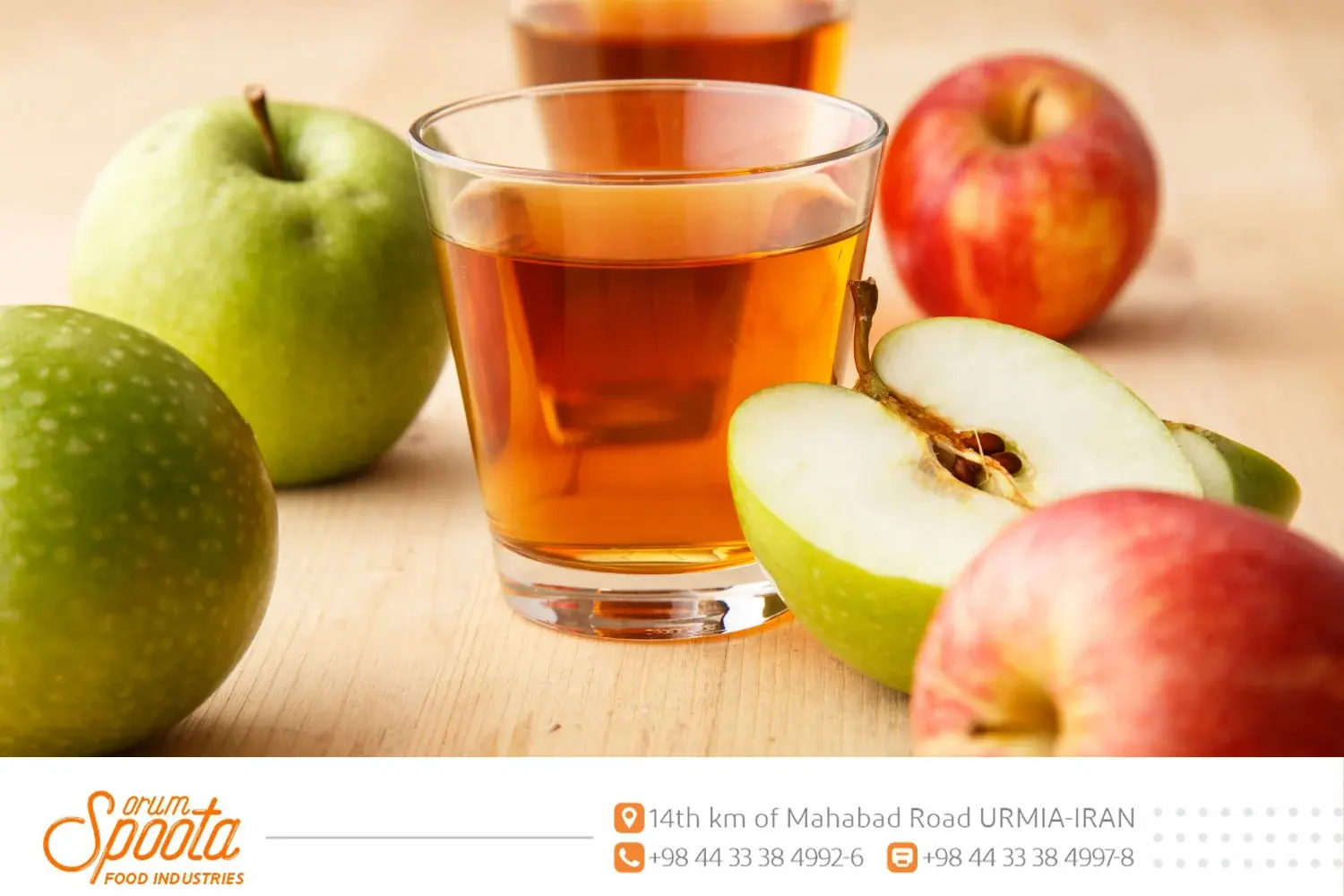

Fruit nectar, a popular and refreshing beverage, is packed with essential vitamins, minerals, and antioxidants that can enhance your overall health. It is made by combining fruit juice with sugar or natural sweeteners such as honey. Compared to natural fruit juices, fruit nectar typically has a higher concentration, offering a richer and sweeter taste. Due to its combination of fruit and sugar, fruit nectar is considered a healthy and beneficial choice for those looking to get their daily energy from natural sources.
Understanding the differences between fruit nectar, fruit juice, and fruit concentrate can help you make a better choice for your health.
- Fruit Juice is made from the pure extract of fruit, with no added concentration or sugar.
- Fruit Concentrate refers to the reduction of fruit volume, which changes the sugar and nutrient content and is typically used to produce industrial beverages.
- Fruit Nectar usually contains at least 25% fruit and is commonly sweetened with added sugar or natural sweeteners.
For producing fruit nectar, raw materials such as fresh fruits, natural sweeteners like brown sugar and honey, and sometimes additives like citric acid to preserve flavor and color are used. The selection of high-quality raw materials in the production process directly affects the taste, nutritional value, and shelf life of the product. Companies like Orum Spoota use the best raw materials and advanced production methods to offer high-quality nectars that not only taste great but are also nutritionally beneficial.
The production process of fruit nectar begins with receiving fresh fruits. First, the fruits are washed, followed by crushing and pressing using specialized machines. Afterward, the fruit extract is separated from the pulp and is usually mixed with sugar or natural sweeteners. In the final stage, the fruit nectar is packaged in suitable containers for distribution to consumers.
📌For more information about our products, contact Orum Spoota experts.
High-quality fruit nectar should possess certain characteristics that set it apart from cheaper, lower-quality nectars. One such feature is the high fruit content, which should make up at least 25% of the product. Additionally, high-quality fruit nectar should have a natural and pleasant taste, reflecting the use of fresh, natural fruits.

Fruit nectar, due to its vitamins, minerals, and antioxidants from fruits, has numerous health benefits. This beverage can help strengthen the immune system, aid digestion, and prevent premature aging. Furthermore, specific nectars, such as pomegranate, grapefruit, and apple, can be effective in weight management and maintaining heart health.
Fruit nectar is suitable for all age groups, from children to adults and seniors. This beverage, due to its pleasant taste and beneficial properties, can be a nutritious addition to the daily diet of individuals of various ages. For children, fruit nectar is a good source of vitamins and minerals, while for adults, it provides energy and supports overall health.
Natural nectars, made from high-quality raw materials without chemical additives, are significantly better in terms of nutrition and taste compared to industrial nectars. Industrial nectars typically contain chemicals, colorants, and preservatives that may be harmful to health. Therefore, natural nectars made from fresh fruits and natural sweeteners are a better choice for daily consumption.
Fruit nectar can be incorporated into a healthy, balanced diet. This beverage helps provide essential vitamins, minerals, and dietary fiber, improving digestive function, boosting the immune system, and maintaining high energy levels.
The sugar content in fruit nectar depends on the type of fruit and the amount of sweeteners used. Nectars that contain natural fruit sugar are typically healthier than those with added sugars. Excessive consumption of sweetened nectars can lead to issues such as weight gain and an increased risk of heart disease. Therefore, it is better to opt for nectars that contain natural fruit sugars.
Orum spoota is a producer of Strawberry NFC. Contact us for more information📌

Choosing high-quality fruit nectar depends on factors such as raw materials, sugar content, additives, and the production process. Here are key points that will help you select quality fruit nectar:
- Raw Materials: Quality fruit nectar should be made from fresh, natural fruits. Check the product label for detailed information about the type of fruit and the percentage of fruit content. Products with higher fruit percentages are a better choice than those with diluted fruit and artificial sweeteners.
- Sugar Content: Pay attention to the sugar content in fruit nectar. Nectars that contain natural fruit sugar are better than those with added sugars. Some natural nectars may include sweeteners such as honey or brown sugar, which are healthier options.
- Additives and Preservatives: High-quality products are usually free from chemicals, artificial colors, and preservatives. Check the product label to ensure there are no unnecessary additives.
- Production Process: Fruit nectar should undergo hygienic and standardized production processes. Processes that use low heat and suitable packaging to preserve flavor and nutrients guarantee the nectar's quality.
In today's market, there are various types of fruit nectars, each differing in taste, color, and nutritional properties. Here are some of the most popular fruit nectars and their features:
Apple Nectar: With a mild and sweet taste, apple nectar is commonly used to support digestive health and maintain heart health. It contains vitamin C and antioxidants that help boost the immune system.
Orange Nectar: Orange nectar is a popular choice due to its sweet and tangy flavor. It is rich in vitamin C and is very beneficial for skin health and the immune system.
Pomegranate Nectar: Known for its anti-inflammatory and antioxidant properties, health enthusiasts favor pomegranate nectar. It is effective in maintaining heart health and lowering blood pressure.
Sour Cherry Nectar: Sour cherry nectar has a tart-sweet flavor and is recognized for its anti-inflammatory and antioxidant benefits. It is beneficial for digestive health and reducing inflammation.
Grape Nectar: Grape nectar contains antioxidants that are particularly beneficial for heart health and preventing premature aging.
📌To order Pomegranate NFC, you can reach out to our sales experts.

Daily consumption of fruit nectar can be beneficial for health, but it is important to keep the following points in mind:
- Type of Nectar: Natural nectars without chemicals and added sugars are the best options for daily consumption. Nectars derived naturally from fruits can be a good source of vitamins and minerals.
- Amount of Consumption: Even natural nectars should be consumed in moderation. Although these beverages contain vitamins and nutrients, excessive intake can lead to increased blood sugar and digestive problems. It is best to incorporate fruit nectar into your daily routine as part of a healthy, balanced diet.
- Balance in Diet: Fruit nectar can be a great alternative to sweetened and artificial beverages, but it should be consumed alongside other foods such as vegetables, fresh fruits, and proteins to ensure a complete diet.
The production and storage process of fruit nectar faces various challenges. Some of these challenges include:
- Fruit Quality: Sourcing high-quality and fresh fruit is one of the major challenges in fruit nectar production. The quality of the fruit directly affects the taste, color, and nutritional value of the nectar.
- Sugar and Chemical Control: One of the challenges in producing fruit nectar is controlling the sugar levels and avoiding the addition of harmful chemicals. Using natural sweeteners and maintaining a balanced sugar level are crucial aspects of production.
- Packaging Process: Proper packaging of fruit nectar is also a key issue. The packaging must be designed to preserve the taste and nutritional properties of the nectar while preventing contamination and spoilage of the product.
- Storage and Distribution: Storing fruit nectar under the right conditions (at the proper temperature and away from direct light) is essential for maintaining its quality. Distribution, especially on a large scale, must be handled in a way that ensures the product reaches consumers in optimal condition.
fruit nectars are an excellent source of nutrients and offer numerous health benefits when consumed regularly. Their production requires careful attention to the selection of raw materials, control over the ingredients (such as sugar levels), and adherence to best practices in both production and storage. By following proper procedures and ensuring the quality of both the raw materials and the final product, fruit nectars can serve as a refreshing, nutritious, and enjoyable beverage. It is also important for producers to maintain high standards in packaging and distribution to ensure that the product reaches consumers in its best form.
Fruit nectars are made by blending fruit juice with water and sugar, sometimes with added preservatives or sweeteners. They are less concentrated than fruit juices but still offer a high level of flavor and nutrients.
Fruit nectars contain less fruit content than fruit juices and typically have added water and sugar to adjust the consistency and sweetness. Fruit juices are pure, with no additives.
Yes, fruit nectar can be consumed daily in moderation. It provides essential vitamins and nutrients but should be consumed as part of a balanced diet.
0 reviews